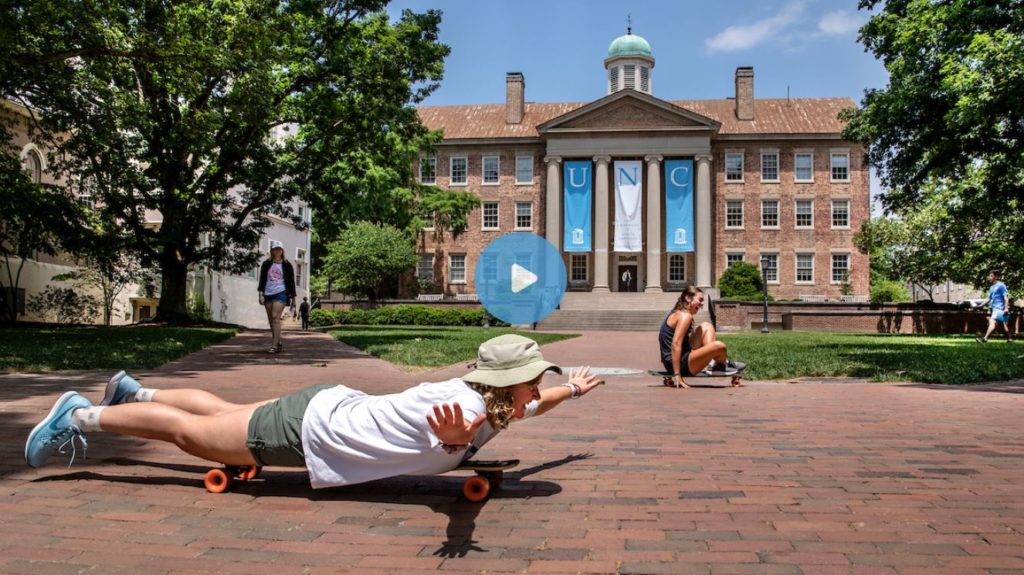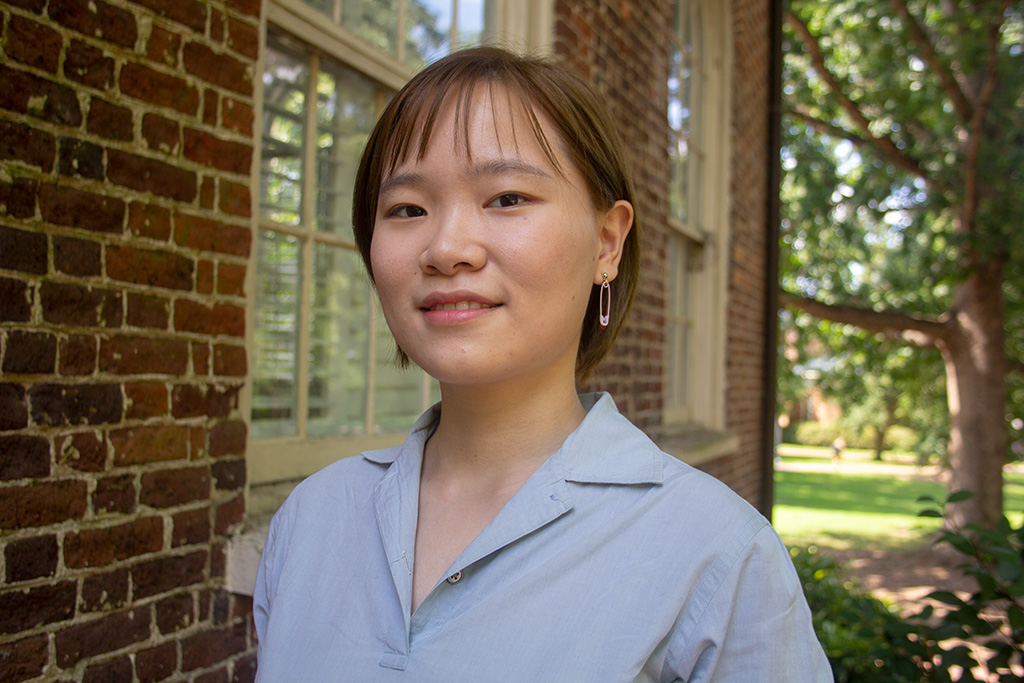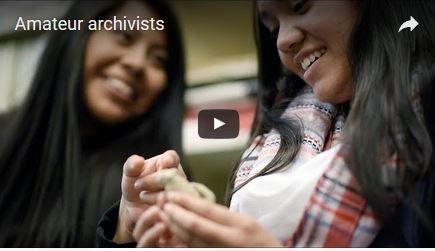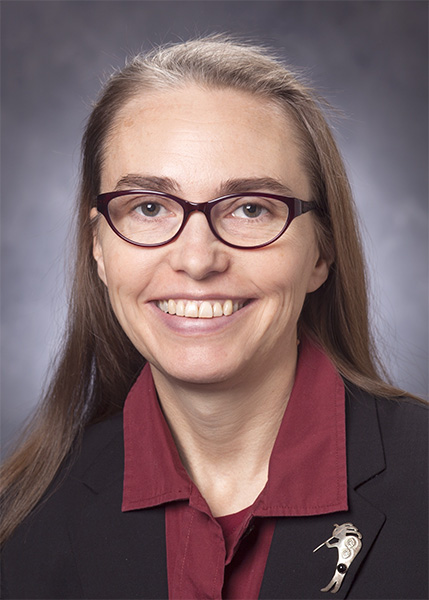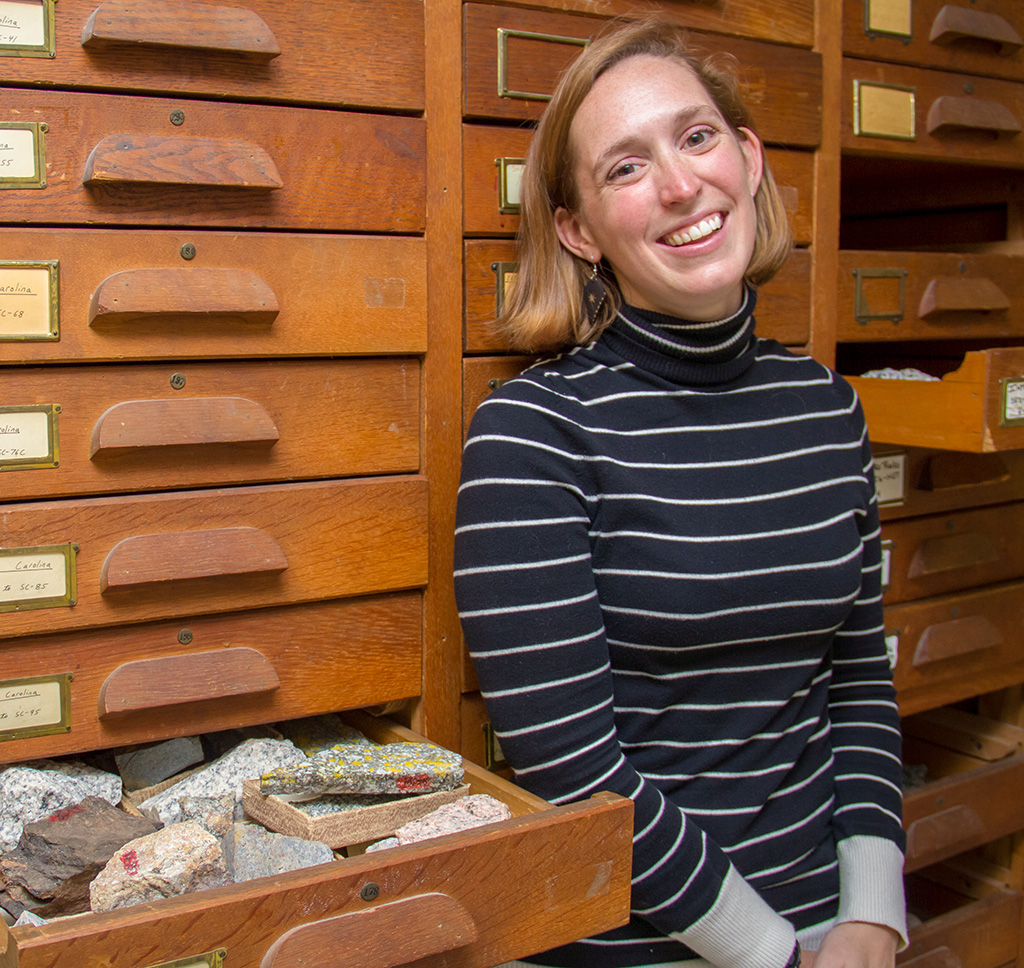
Madelyn Percy’s work has taken her to Chile, France, Belize and Iceland. She has spent a total of 18 weeks in the Galapagos Archipelago studying soil fertility. At the University of North Carolina at Chapel Hill, Percy is pursuing her goal of becoming a “rock solid geoscience educator.”
Percy served as the 2017-2018 president of the Graduate and Professional Student Federation (GPSF). In her leadership role, she spoke at the 2017 University Day and the launch of the Campaign for Carolina, UNC-Chapel Hill’s $4.25 billion comprehensive fundraising campaign.
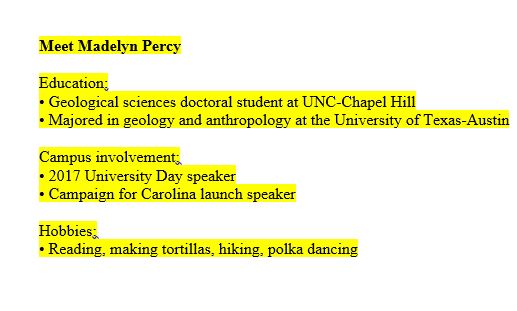 In March 2017, students voted to separate the GPSF from the Student Congress —for the first time establishing independent governments for graduate and professional students and for undergraduate students. “The split has meant that there are two strong voices advocating on behalf of all students on campus,” Percy said.
In March 2017, students voted to separate the GPSF from the Student Congress —for the first time establishing independent governments for graduate and professional students and for undergraduate students. “The split has meant that there are two strong voices advocating on behalf of all students on campus,” Percy said.
Percy is also a Royster Fellow. The Graduate School’s interdisciplinary Royster Society of Fellows provides funding, professional development and innovative opportunities for doctoral students.
Christine Scalora, senior student editor of Carolina Graduate School Magazine, spoke to her on a number of topics.
Q: What has been your greatest accomplishment in graduate school?
“Learning how to be a scientist. I have really become so much better at framing questions and figuring out how to ask questions so I can approach things in a scientific way and that has in turn affected everything I do. That’s made me a better manager. That’s made me a better leader. That’s made me a better tortilla maker.”
Q: Tell me about your research.
“I’m trying to understand how rock becomes soil. We know that over time a rock will be eroded and weathered, and can then eventually form a soil. But where we’re a little unclear is how rock minerals become soil minerals and in turn how that affects the fertility of the soil.”
Q: How has The Graduate School helped you achieve your research and teaching goals?
“The Graduate School has been truly spectacular. I think the resources that are provided to us as graduate students are, bar none, some of the best in the country. I’ve definitely made use of a lot of the professional development workshops. Dean [Steve] Matson has always been a great supporter. Dr. Hoi Ning Ngai, who is the associate dean of student affairs, has been a really great mentor.”
Q: What has your experience been like as a Royster Fellow?
“It’s been great. The best thing about the Royster Society is that it takes you out of your little silo and forces you to interact with other people and understand what their perspectives are.”
Q: Why did you decide to get involved with GPSF?
“I really believe in the GPSF’s mission. I think that in so many cases, we think about how undergraduates face challenges at the university but we don’t think about graduate and professional students. The GPSF has consistently done a really great job of advocating on behalf of graduate and professional students.”
Q: What do you hope to do after you graduate?
“I absolutely love teaching. Before starting at UNC, I taught high school, and I did not leave that job lightly. I cried really hard on my last day because it was the best job I’ve ever had. At this point I see myself teaching at a research institution. There are a couple really interesting positions in the federal government working in some of the national laboratories that would also be great.”

